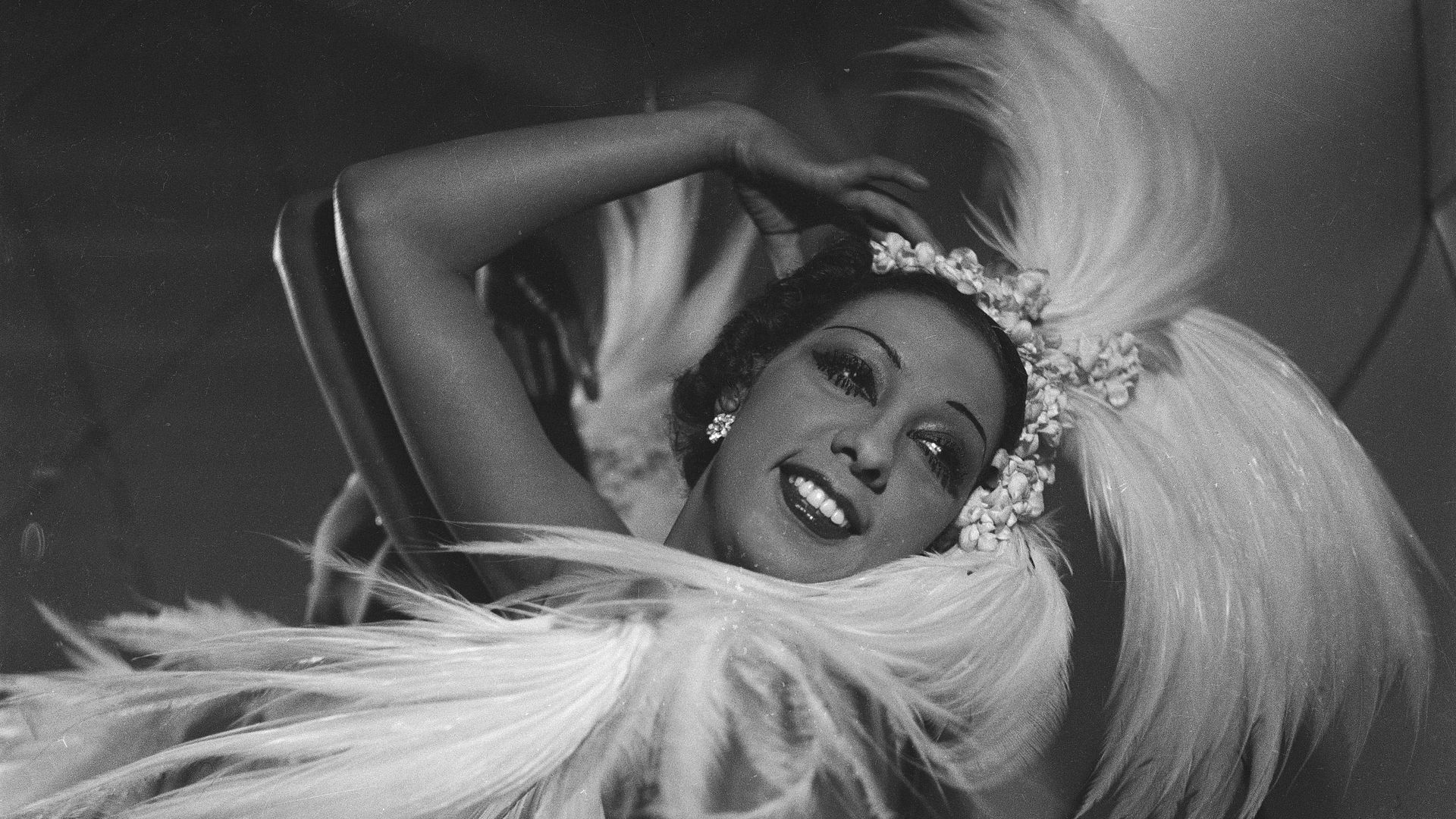Josephine Baker's encore
Add Axios as your preferred source to
see more of our stories on Google.

Josephine Baker, 1926. Photo: Gaston Paris/Roger Viollet via Getty Images
Josephine Baker, the late American-born singer and entertainer who fought with the French Resistance during World War II, will receive one of France's highest civilian honors on Nov. 30 as the first Black woman to be buried in Paris' Pantheon.
Why it matters: Activists are using her reinterment to raise awareness about the global celebrity and civil rights activist, who died in 1975. She was one of two women to speak at the 1963 March on Washington — but in recent decades has largely been forgotten in the U.S.
- "France has long acknowledged the importance of Josephine Baker, but here in the U.S., that recognition has been much slower," Ricki Stevenson, a California native and founder and CEO of Black Paris Tours, told Axios.
Driving the news: Washington University in St. Louis, in the city where Baker was born in 1906, is hosting a commemoration. The Missouri History Museum also will host a tribute.
- The National Hotel in Miami Beach is honoring Baker with a special concert. She famously forced integration at Miami Beach's Copa City Club in 1951 after refusing to perform for segregated audiences.
- Activists are pressing San Francisco to declare Nov. 30 "Josephine Baker Day" citing her later performances there, which were seen as important moments in the struggle for LGBTQ rights.
Catch up quick: Baker moved to France and became a star entertainer in the 1930s after hitting a glass ceiling in the segregated United States. She eventually renounced her U.S. citizenship to become French.
- She captivated audiences with her performances and did not shy away from her bisexuality. She had a high-profile romance with Mexican artist Frida Kahlo.
- During WWII, she joined the French Resistance, using her star status to travel and covertly gather information
- Baker was buried in Monaco in her French military uniform, with the medals she received for her work in the Resistance.
Between the lines: Baker's move to France at a time of racial terror in the U.S. later influenced other Black American intellectuals, writers, and musicians — like James Baldwin and Miles Davis — to live in Paris.
